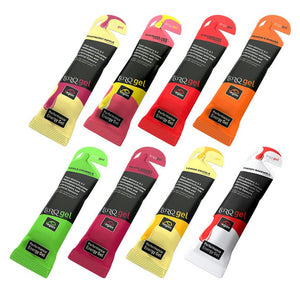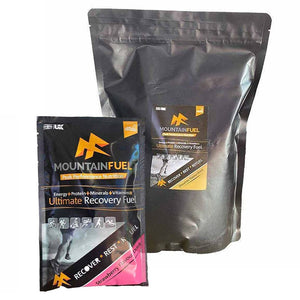
Marathon Nutrition Planning: Fuel your way to the finish line
Completing a marathon is a remarkable feat that requires months of dedicated training, mental strength, and proper nutrition.
As an endurance event, a marathon is very demanding on the body, and fuelling it properly is key to achieving your best performance and ensuring success.
We are going to look at the importance of planning your marathon nutrition and provide some practical tips to help you fuel your way to the finish line, whether you’re a seasoned pro or a first timer.
Anybody who has run a marathon before will tell you that a successful nutrition plan should start way before race day. Proper pre-marathon nutrition involves focusing on three key aspects: carbohydrates, hydration, and planning.
Carbohydrates:
These serve as the primary fuel source for endurance activities. Aim to consume complex carbs like whole grains, fruits, and vegetables in the days leading up to your race. This will help maximise glycogen stores in your muscles and liver, ensuring sustained energy throughout your run.
Hydration:
Hydration is always important whether you’re running a marathon or not, but it is also crucial for getting your best performance.
For runners it is vital to learn The Art of Staying Hydrated During Workouts. Start hydrating well in advance of race day and continue to drink fluids regularly.
Include electrolyte-rich beverages to make sure you’re replacing those essential minerals lost through sweat.
Planning:
Avoid trying new foods or supplements on race day. By this time you should have a thoroughly tried and tested plan. Your training runs are the time to experiment to determine what works best for you.
Aim to consume your last substantial meal 2-4 hours before the start of the race, allowing plenty of time to digest.

Fuelling During the Marathon
During the race it is essential to replenish your energy stores and maintain hydration levels. You will know what works best for you by now but here are a few strategies you might employ:
Energy Gels & Energy Chews
These are small, easily portable and easy to take on the go. They’re a great source of carbs and provide a fast energy boost. Although it is important to try different brands and flavours during your training to see what works best for you as there is no one size fits all.
For Marathons we love the Torq Energy Gel & PF 30 Gel from precision hydration. These gels both contain around 30g Carbs per gel, however the PF 30 Gel doesn't contain any added electrolytes- this is something to look out for when planning your nutrition as replenishing your electrolytes ensures proper hydration
Energy Drinks
Energy drink mixes that contain electrolytes and carbs will be your best option for replenishing energy and maintaining hydration levels. If you find these too harsh on the stomach then they can be easily diluted.
We like the Naak Ultra Energy Drink Mix which offers 55g Carbs plus added essential electrolytes and BCAA's.
Real Food
What's the deal with real food? Some runners prefer to use real food sources. Options such as bananas, oranges, energy bars, or even a small sandwich can provide a mix of carbs, proteins and fats. Test these options during your training to make sure they work for you. You can even find ‘real food’ gels these days like Spring and Huma. Read our article on real food here:
Water stations- Take advantage of these! Sip water regularly, to maintain your hydration levels.

Post Marathon Recovery
Once you pass the finish line (Congratulations!) your nutrition plan doesn’t end there. Getting the right post-marathon nutrition is crucial for a speedy recovery, replenishing energy stores, repairing damaged muscles and preventing you from getting sick. You should consider the following:
Rehydrate:
Replace the fluids you lost during your race by drinking water and electrolyte-rich beverages. Foods with a high-water content are also great for this- watermelon, cucumber, to name a few.
Carbohydrates and Protein:
Make sure you eat a meal that is high in both carbs and protein 30 minutes-1 hour after your race. This will help aid muscle recovery and glycogen replenishment.
It's also a good idea to start sipping a recovery drink within 20 minutes of crossing the finish line, such as the Mountain Fuel Ultimate Recovery Fuel. This will kick start your recovery.
Listen to your body:
Your body is pretty clever and will generally guide you towards what you need to recover so make sure you listen.
Eat when you’re hungry, drink when you’re thirsty- we know it sounds obvious.
Takeaway:
Nutrition is vital to achieve your peak performance and complete a marathon successfully. By focusing on the three key stages- before, during, after- you can make sure you are prepared ahead of time with a well-tested plan.
Also remember to personalise your nutrition based on your preferences and needs. Just because somebody else’s plan worked for them it doesn’t mean it will work for you. Once you have all of this fine-tuned you should be well on your way to success.





